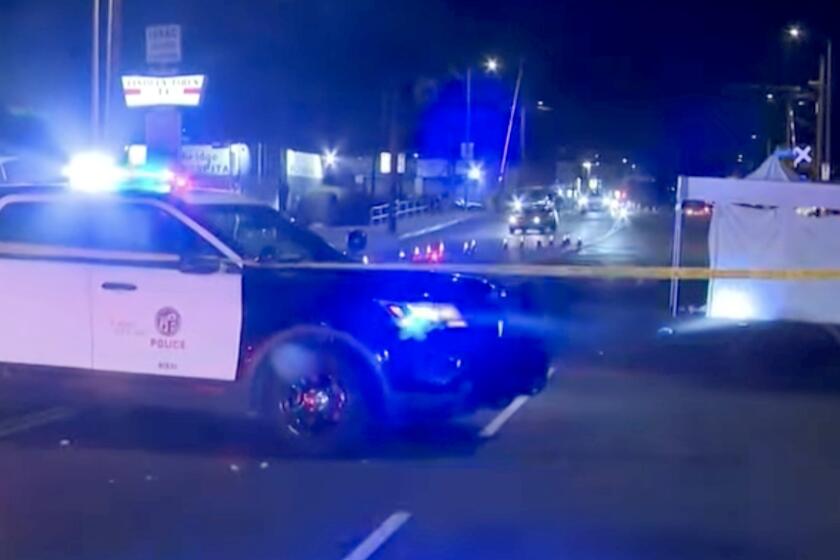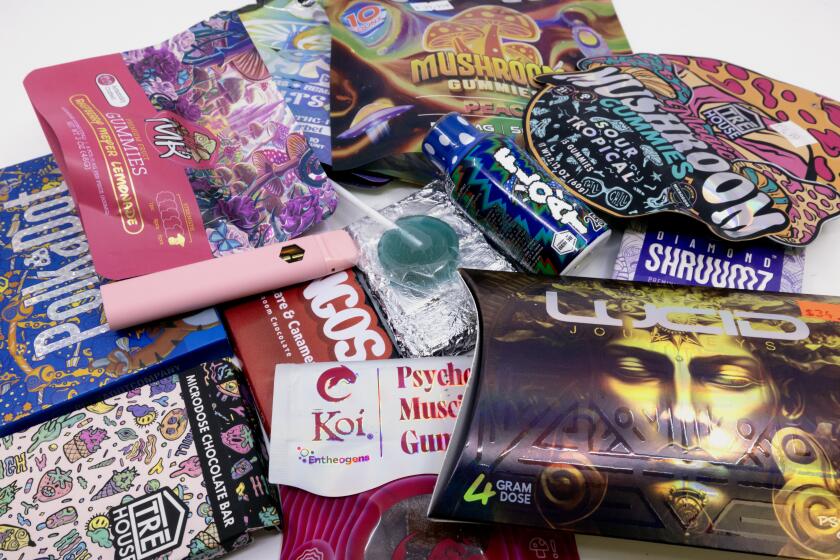Family Members Are Upset at Reports Body Parts Were Sold
The investigation into the sale of body parts at UCLA’s medical school has been devastating to people worried about the fate of loved ones whose bodies had been donated to the university.
Others are reconsidering their decision to will their own bodies to UCLA for medical research. More than a decade before Richard Williams died in April 2002, he and his wife, Shirley, now 73, had agreed to donate their bodies to UCLA to help advance knowledge about aging and disease. Although Williams does not know whether her husband’s body parts were sold off, the prospect is disturbing.
“The thought of Dick being cut up in little pieces and sold off, it’s just horrible,” she said. “Of all the bad things a person can think of to do, I can’t think of anything worse.”
Selma Liroff, 81, and her husband, Sidney, made a similar decision to donate their bodies.
“It was against our religion, but we felt it was a good thing. How could we not do it?” she said. “We’ve gotten so much from life.”
Now Liroff is afraid that UCLA broke its promise to treat their bodies with respect. Sidney Liroff died in March 2001. Because of the latest allegations, his widow worries that she will not be able to keep her pact with her husband.
“We were supposed to be together,” she said. “I can’t let him do that and me go do something else. It’s not right and then I feel funny about doing this now.
“I don’t know what I’m going to do,” she said.
Andrea Blindell, 56, is also among the 11,000 people who have signed up with UCLA to donate their bodies. Now she is terrified of the prospect, she said.
She sold her burial plot at Hillside Memorial Park years ago to pay bills and now, because she’s on disability, doesn’t have the money to buy it back.
“I’m between a rock and a hard place, so what do I do?” Blindell said Sunday. “I’m scared to death.... Whoever thought in a million years that this could happen?”
Williams and Blindell both said they remain committed to donating their bodies to science but would begin looking for alternatives to UCLA.
Others are less worried. Carl Lublin, 81, said his mother and his brother donated their bodies to UCLA for research when they died. He has agreed to do the same when he dies, and the recent arrests haven’t changed his mind.
“I’m sure it will be taken care of,” he said.
The important thing is to help advance science, he said. “They may not be able to use my parts, but at least somebody can get experience on how to open and how to close and so forth. When you’re dead, you’re dead.”
UCLA’s willed body program was the first in the nation. Every year it receives about 175 bodies, which are to be used to teach first-year medical students and to conduct research.
Liroff said those involved in the scandal should have remembered that the bodies were more than cadavers.
“It’s my husband,” she said. “We were married over 50 years.”
More to Read
Sign up for Essential California
The most important California stories and recommendations in your inbox every morning.
You may occasionally receive promotional content from the Los Angeles Times.










